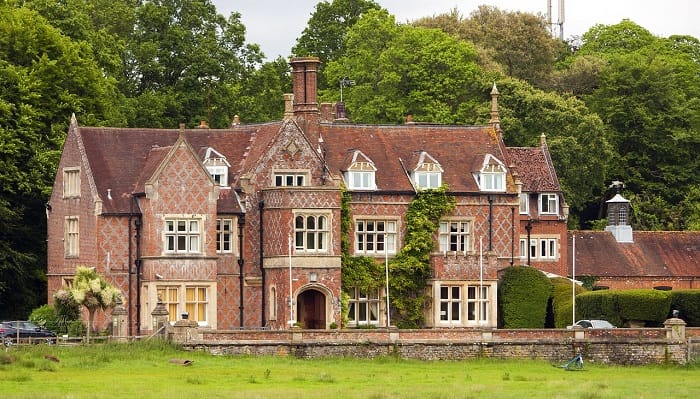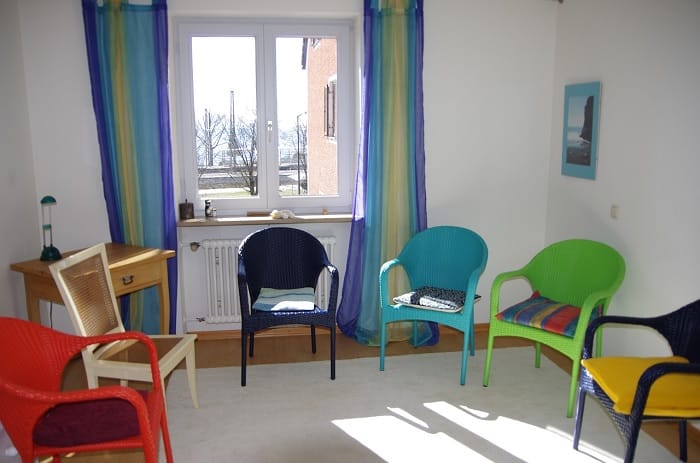Are you determined to beat your drug or alcohol addiction once and for all at a drug or alcohol rehab in Bolton?
Are you feeling confused about the various treatment options available to you? Then it’s time to get in touch with our team at Rehab 4 Addiction.
At Rehab 4 Addiction, we have a world-class drug and alcohol rehab centre in Bolton. After completing treatment at our rehab centres, patients gain a deeper awareness of their addiction and the insight needed to make better choices moving forward. Start your recovery sooner. You could be admitted to our Bolton rehab centre within days.
Whether you’re seeking residential, outpatient or even at-home treatment for your addiction in Bolton and near Bolton, we can assist.
We’ll work with you to help you find a treatment provider that’s right for your needs and circumstances, helping you to overcome any addiction. [1]
You can get help for yourself or loved ones at a drug or alcohol rehab in Bolton for all kinds of addictions, including for less known substances such as a mephedrone addiction.
Call our expert team today for more information on drug and alcohol rehab in Bolton on: 0800 140 4690
Addiction is a key issue across the UK, and Bolton is sadly no exception.
Recent studies have shown just how severe the need for proper addiction rehab and treatment in Bolton is.
Call our expert team today for more information on Alcohol Rehab in Bolton on: 0800 140 4690

Addiction is a devastating disease that can impact anyone, regardless of their sex, age [2] or background.
However, there are some risk factors that can make some people more likely to develop addiction and need to go to rehab.
Gene-Jack Wang in a recent scientific paper [3] found evidence to support the idea that when we indulge in drugs, alcohol or addictive behaviours, [4] our brain’s reward centre is activated.
In fact, even when we’re simply experiencing a craving for it, these imaging studies have shown brain activity associated with pleasure.
This means our brains are linking the addiction with a feeling of accomplishment which reinforces it as a positive thing that we want more of.
Alison Goate’s research [5] backs evidence that a protein coding gene known as CHRM2 – (muscarinic cholinergic receptor 2) is linked with a greater chance of drug and alcohol use.
This finding reveals that addiction can be genetic [6] and reinforces the idea that there are many causes of addiction. [7]
Drug and alcohol rehabs use cutting-edge research to improve recovery treatments.
Call our expert team today for more information on drug and alcohol rehab in Bolton on: 0800 140 4690

Whilst there may be times when outpatient or at-home treatment is the better option to a rehabilitation centre, we believe that residential treatment is usually the superior choice.
Checking into a residential drug and alcohol rehab clinic in Bolton or near Bolton will separate you from your addiction triggers.
It also ensures that you have round the clock medical assistance should you need it.
Therefore, you experience any unpleasant or potentially very dangerous withdrawal symptoms, there’s expert help at hand.
If you experienced such symptoms (including seizures or hallucinations) whilst at home, the consequences could be fatal.
Medicated detox follows NICE Guidelines. [8] These treatments include cognitive behavioural therapy, dialectical behavioural therapy and modern psychotherapy.
We can advise you of the various rehab treatment centres [9] in Bolton, helping to find the one that caters to your requirements.
Call our expert team today for more information on Drug and Alcohol Rehab in Bolton on: 0800 140 4690

Getting admitted to a rehab facility in Bolton is not as difficult as you think; you might just need some help.
A call to our Rehab 4 Addiction helpline can help you with the rehab admissions process in Bolton, and answer any rehab questions you may have.
Our admission process to a drug or alcohol rehab in Bolton starts with a brief telephone assessment.
Then, we can cross-reference our extensive database to find a rehab that suits your individual needs.
Then, all you need to do is answer our questions as honestly as you can.
Honesty is vital in allowing us to learn everything we need to know. Helpful details include what type of addiction [18] you are suffering from, the severity [19] and your personal circumstances.
Then, once you’ve chosen a rehab centre in Bolton that suits your needs, we can make a referral that grants you swift access to treatment.
Once you’re admitted to drug or alcohol rehab in Bolton, clinicians go through a more detailed assessment to ensure appropriate treatment. [20]
Call our expert team today for more information on drug and alcohol rehab in Bolton on: 0800 140 4690

Sometimes, all you need is a heart-to-heart to get a loved one to understand that they have a problem with drugs or alcohol. But often, this isn’t enough.
When a friend or family member’s drinking begins to affect their life and the lives of those around them, it might be time for an intervention.
Intervention can help you suggest drug and alcohol rehab to your loved one.
A pre-arranged meeting in the form of an intervention is the opportunity you may need to confront their addiction and explain how it impacts your life. [21]
For the best chance of success, enlisting the help of an intervention specialist in Bolton is vital.
Call our expert team today for more information on drug and alcohol rehab in Bolton on: 0800 140 4690

Providing an exact cost for rehab in Bolton without a full assessment of your needs is tricky, as many factors can affect the price. However, some general prices can indicate how much you might spend.
For example, prices differ from centre to centre, as does how long you plan to stay in rehab. Whether or not you share a room will also have an impact on price.
But remember, no matter how expensive recovery at drug and alcohol rehab might seem, there is always an option to suit your budget.
When a 10-day rehab is suitable, the cost ranges from between £2,000 to £4,000 for a multi-occupancy room. If you’d prefer not to share, then a single occupancy room for 10-days will cost between £3,000 to £6,000.
When clinicians have recommended a 28-day stay in rehab, the cost of a medically assisted detox and private residential rehab ranges from between £8,000 to £12,000 for a single occupancy room.
However, if this price is a little on the high side, you can decrease the cost to around £6,000 for a shared room.
However, if you only suffer from a mild addiction like a mild prescription drug addiction and you don’t require mental health treatment, and don’t have this type of disposable income, then a home detox might be more suitable, costing around £1,500.
Although many people succeed with this method of drug and alcohol rehab, it won’t protect you from the distraction and temptations of addiction when treatments are not in session.
The easiest way to learn about the prices of rehabs in Bolton is to give our helpline a call, where our friendly staff will be happy to help you and answer any questions you may have about rehab.
Call our expert team today for more information on Drug and Alcohol Rehab in Bolton on: 0800 140 4690

Although both free and private rehab options are available in Bolton, we only refer our patients to private clinics. Doing so ensure their best chances of success in recovery.
However, before deciding whether to spend your hard-earned savings, you should know the positives and negatives of each.
Although private and publicly funded rehab always aims to put you on a long-term path to recovery, some critical differences are outlined below.
Cost [22] and waiting times can have the most significant effect on your choice of drug or alcohol rehab in Bolton. Council-funded rehab is a free and accessible option for anyone in Bolton without the means to pay for rehab.
However, you will face a long wait [23] before you have access to your treatment due to the number of people waiting for this service.
While private rehab can seem dauntingly expensive, it is vital for anyone suffering from severe addiction that is causing immediate damage to a person’s life.
Paying a premium for drug or alcohol rehab in Bolton means you receive the immediate treatment that you need.
Being faced with such extended waiting lists means you often won’t be able to choose which rehab centre you’re placed into when choosing publicly funded treatment.
Unfortunately for those in dire need of residential inpatient treatment, you may not even have access to this due to lack of availability.
Receiving outpatient treatment instead of inpatient drug and alcohol rehab that’s not suited to severe alcohol or substance abuse does not breed the same level of success.
Opting for private rehab means you can choose where and what type of treatment centre to attend, dependent on your needs.
Superior therapies and therapists are always provided as standard in private rehab centres.
To enrol on a private drug or alcohol rehab in Bolton to ensure you receive a thorough assessment and personalised treatment plan that’s entirely based on your needs.
Call our expert team today for more information on drug and alcohol rehab in Bolton on: 0800 140 4690
These therapies can include (amongst others):
These therapies are always provided by highly skilled and qualified therapists and clinicians, which you’ll have ample access to.
Building a relapse prevention plan during the last days of private rehab gives you all the confidence you need for life after rehab.
Returning to home in Bolton can be daunting, but private rehab professionals will help you create a relapse prevention plan best suited to recognising and mitigating relapse triggers, such as the urge to drink at night. [24]
A free 12-month aftercare programme is also something you’ll often receive from private rehab, ensuring you have plenty of support for life after rehab.
Relaxing settings are not uncommon in a private rehab, but not so much with publicly funded rehab.
Putting your body and mind in the right place to focus on recovery is possible with potential access to scenic settings, ensuite facilities, living quarters, and luxuries like spas, Jacuzzis, and saunas.
Call our expert team today for more information on drug and alcohol rehab in Bolton on: 0800 140 4690

With busy lives, children, work, and other commitments, it’s understandable that we hear this question so often.
Whilst recovery itself can take anywhere from six months to five years [25] to longer to fully ‘complete’, formal treatment will never last this long.
Rehab in Bolton usually lasts for 28 days for most patients suffering moderate to severe addictions.
28-days may sound like a long time, but it includes admission, detox, therapy treatments, planning for life after rehab and discharge.
If you were to go through outpatient treatment, you would actually spend longer in treatment, as there can be much time between treatments.
If a person is demonstrating only mild alcohol or substance abuse dependence or is merely at risk of relapse, they may be able to complete the rehab within seven days.
However, without detox or intense therapies, a seven-day stint may not be sufficient enough to get you back on track. On these occasions, rehab can be extended to 60 or 90 days.
When severe complications to detox could present themselves due to long-term opiate or alcohol use, [26] this longer time spent in rehab ensures safe, medically managed detox.
In addition, the co-occurring mental health conditions [27] that often come with long-term drug use can also mean that patients may need more time spent in therapy.
Although it’s completely natural to be worried about leaving your life, work, and family for such an extended length of time, it’s essential to see rehab treatment in Bolton as an investment in your future.
By taking the positive step of rehab, you are allowing yourself to achieve sobriety.
Our service always comes with free advice, so we can help you raise the subject of rehab with your employer or arrange care for your dependents while away at rehab.
Call our expert team today for more information about drug alcohol rehab Bolton on: 0800 140 4690.

It’s not uncommon for sufferers of alcohol abuse to have tried on multiple occasions to quit drinking without help or success. [28]
Unfortunately, the uncomfortable and potentially severe withdrawal symptoms [29] make it nearly impossible to recover from alcohol without medical supervision.
But Rehab 4 Addiction is here to help you find the proper addiction treatment and high-quality alcohol detox clinic in Bolton.
Enrolling in one of these medically managed alcohol detox clinics means you can give yourself a much safer and more comfortable method to detox.
Mild to moderate alcohol withdrawal symptoms that can be treated at rehab include cravings, insomnia, fatigue, aches and pains, anxiety, depression, and hallucinations.
More severe symptoms include disorientation, confusion, and tremors, which are dangerous to your health.
However, the severity of these symptoms can be safely managed through a detox clinic at a Bolton rehab centre.
Withdrawal symptoms are reduced with a suitable dose of benzodiazepine (Librium).
Utilising the right amount of Librium ensures symptoms of panic, anxiety and withdrawal seizures are better managed.
You might also be given other substances such as Buprenorphine, Naltrexone [30], Acamprosate [31] and a wide variety of anti-anxiety medications such as Nefazodone [32], Paroxetine, [33] and their various alternatives. [34]
You’ll spend the next three weeks in therapy and activities focussed on the psychological recovery from alcohol.

The complications of alcohol withdrawal are unpleasant and can be highly dangerous to a person’s mental and physical health.
Therefore, it is never safe to go through detox alone [35] without medical assistance or supervision during rehabilitation.
Without the correct medical help or detox treatment, you put yourself at risk of suffering from the emotional and physical symptoms of Alcohol Withdrawal Syndrome (AWS).
Even the mild symptoms of AWS [36] are unpleasant, including fatigue, fever, and nausea.
But the symptoms can continue to get worse with severe alcohol abuse, including heart disturbances, withdrawal seizures, evaluated blood pressure, hallucinations, and potentially fatal delirium tremens.
Rehab can help you easethese symptoms with medications and therapies.
Call our expert team today for drug or alcohol rehab Bolton on: 0800 140 4690.

Research has shown [37] that personalised, comprehensive plans provide the highest level of success in recovery.
For this reason, we’ll always refer you to a rehab centre in Bolton that offers a full range of therapies.
When you sign up for addiction rehab in Bolton, you’ll often have access to a vast range of therapies, including.
Every centre on our database will facilitate these therapies through professional therapists and medical professionals to ensure the highest recovery rates.
Call our expert team today for more information on Drug and Alcohol Rehab in Bolton on: 0800 140 4690

Ensuring that you find a rehab in Bolton that provides dual diagnosis is integral to the success of your recovery.
This method is indeed one of the most significant ways that you can promote your recovery.
Unfortunately, addictions often come with co-occurring mental health conditions. [38]
These can be both the cause and result of addiction, and often include:
These chronic mental health conditions can interfere with your recovery at rehab. [41]
Therefore, you must find a clinician to diagnose any co-occurring psychiatric disorders and provide subsequent personalised treatment.
Call our expert team today for more information on drug and alcohol rehab in Bolton on: 0800 140 4690

The thought of leaving alcohol or drug rehab to return to your everyday life in Bolton can be frightening, especially as you worry about the prospect of ‘falling off the wagon’ [42] early into recovery.
Unfortunately, this fear is coupled with the high relapse rate [43] that usually accompanies alcohol and substance abuse recovery, as addiction is not a disease that can be cured. [44]
However, you can fill yourself with all the confidence needed to cope with life after rehab with a relapse prevention plan.
During the last few days of your rehab stay, the staff will assist you in creating a straightforward document that allows you to identify addiction triggers and signs of relapse.
Call our expert team today for more information on Drug and Alcohol Rehab in Bolton on: 0800 140 4690

Other options are available for those who cannot attend a long stay in residential rehab in Bolton due to personal circumstances or the cost of the commitments.
These alternatives include:
For those who can’t afford private rehab treatment, publicly funded and council-funded rehab centres are usually available on the NHS through Bolton’s local drug and alcohol teams.
You can generally refer yourself personally or through your GP.
However, publicly funded treatment usually comes in the form of outpatient treatment.
Outpatient rehab treatment will involve time away from treatment sessions, meaning you are vulnerable to the temptations and triggers of alcohol or substance abuse.
In contrast, helpful information and group therapy sessions available at outpatient treatments allow for a better chance at recovery.
An example of an NHS-run treatment service is Achieve Recovery Services in Bolton.
Call our expert team today for more information on drug and alcohol rehab in Bolton on: 0800 140 4690
Address: Beacon House
69 – 73 Manchester Road
Bolton, BL2 1ES
Telephone: 01204 483 090
Address: MHIST 1st Floor
Moorland House
Bark Street
Bolton, BL1 2AX
Telephone: 01204 483 090
Call our expert team today for more information on drug and alcohol rehab in Bolton on: 0800 140 4690
As one of the much more budget-friendly options, home-detox is suitable for anyone in Bolton with mild alcohol addiction.
However, this method for alcohol withdrawal is also best suited to those with plenty of family support in place.
If you or a family member are showing signs of alcohol abuse [45] and require a home detox package, we can refer you to an alcohol rehab in Bolton that ensures this is done safely and comfortably.
Addiction has a nasty habit of affecting the whole family and friends of those struggling with addiction.
Therefore, extra help is usually needed to heal the wounds of addiction and improve relationships between family members.
An-Anon family group meetings help the family promote understanding, confidence, and motivation for a new life without addiction.
Call our expert team today for more information on drug and alcohol rehab in Bolton on: 0800 140 4690
As another free form of publicly funded addiction treatment, the group meetings of Alcoholics Anonymous and Narcotics Anonymous [46] are super helpful for recovery.
Again, making use of their 12-step programmes gives you a better chance of recovery.
In addition, these groups provide a sense of motivation and uplift that comes from listening to others who have or are going through recovery.
But for the best chance of success when attending these meetings, continuing abstinence from drugs or alcohol and the meetings themselves is vital.
The list of free and publicly funded options for addiction treatment continues to grow, with SMART Recovery group sessions being an essential way to rid yourself of addiction.
Using research-based tools like Cognitive Behavioural Therapy (CBT) allows users to recognise they have a problem and become motivated towards change.
CBT has an extremely high success rate [47] with very low chances of relapse [48], although some individuals will find it less effective [49] due to pre-existing conditions.
Drug and alcohol abuse can create a strong sense of isolation and depression. SMART recovery meetings ensure you don’t feel alone in addiction. Like other group sessions, you can feel encouraged by listening to others speak and sharing your own story.
Call our expert team today for more information on Drug and Alcohol Rehab in Bolton on: 0800 140 4690

When you complete your treatment programme at a top Bolton clinic, your recovery isn’t considered complete.
You’ll receive aftercare for up to a year once you leave the treatment centre, advancing your recovery process and minimising the risk that you will relapse by taking drugs such as fentanyl, having a cocaine addiction or drinking alcohol again.
Most providers for substance use treatment in Bolton offer aftercare as part of their rehabilitation programme, which means you won’t need to pay extra in order to benefit from this service of a personalised aftercare plan.
You’ll undergo one to one and group therapy sessions at an alcohol and drug addiction rehab clinic in Bolton.
Getting in touch with our team about drug or alcohol rehab in Bolton couldn’t be easier.
Simply call us on 0800 140 4690, and we’ll carry out an assessment in order to ascertain what type of treatment at a drug and alcohol rehab in Bolton would be most suited to your needs.
Taking the first step [50] to conquering your addiction can be tough, but you can rest assured that we’re here to provide the support that you need when finding the right drug or alcohol addiction clinic in Bolton.
Rehab 4 Addiction facilitates CQC – Care Quality Commissioned rehabs with a variety of addiction treatments in Manchester and across Lancashire in Bolton, Salford, Blackpool, Stockport, Blackburn, Rochdale, Wigan, Preston, Oldham, Bury, Lancaster, Chorley, Burnley and St Annes.
This article was written by Boris Mackey. You can connect with Boris online at LinkedIn or X.com.
Call our expert team today for more information on drug and alcohol rehab in Bolton on: 0800 140 4690
Call our expert team today for more information on drug and alcohol rehab in Bolton on: 0800 140 4690
[1] https://nida.nih.gov/publications/drugs-brains-behavior-science-addiction/drug-misuse-addiction
[2] https://www.niaaa.nih.gov/alcohols-effects-health/alcohol-topics/older-adults
[3] https://www.jci.org/articles/view/18533
[4] https://www.ncbi.nlm.nih.gov/pmc/articles/PMC3654310/
[5] https://onlinelibrary.wiley.com/doi/abs/10.1111/j.1360-0443.2007.01871.x
[6] https://medlineplus.gov/ency/article/001522.htm
[7] https://nida.nih.gov/publications/drugfacts/understanding-drug-use-addiction
[8] https://pathways.nice.org.uk/pathways/alcohol-use-disorders/acute-alcohol-withdrawal
[18] https://www.ncbi.nlm.nih.gov/pmc/articles/PMC5328289/
[19]https://www.cdc.gov/alcohol/onlinemedia/infographics/excessive-alcohol-use.html
[21]https://www.ahrq.gov/prevention/guidelines/tobacco/5steps.html
[22] https://nida.nih.gov/research-topics/recovery
[27] https://www.racnj.com/the-five-stages-of-addiction-recovery/
[28] https://www.niaaa.nih.gov/alcohol-health/overview-alcohol-consumption/moderate-binge-drinking
[29] https://web.archive.org/web/20230315051842/https://pubs.niaaa.nih.gov/publications/arh22-1/61-66.pdf
[31] https://www.healthdirect.gov.au/addiction-withdrawal-symptoms
[32] https://www.aafp.org/pubs/afp/issues/2016/0315/p457.html
[33] https://effectivehealthcare.ahrq.gov/products/alcohol-misuse-drug-therapy/consumer
[34] https://agapetc.com/what-is-the-best-antidepressant-for-an-alcoholic/
[35] https://www.ncbi.nlm.nih.gov/pmc/articles/PMC5614930/
[36] https://www.rehab4addiction.co.uk/addiction-treatment/naltrexone-implant
[38] https://www.ncbi.nlm.nih.gov/books/NBK459239/
[39] https://nida.nih.gov/publications/research-reports/cocaine/what-are-some-ways-cocaine-changes-brain
[40] https://nida.nih.gov/publications/research-reports/heroin/what-are-treatments-heroin-use-disorder
[41] https://www.painscale.com/article/the-4-c-s-of-addiction
[42] https://nida.nih.gov/publications/research-reports/marijuana/how-does-marijuana-produce-its-effects
[43] https://www.ncbi.nlm.nih.gov/pmc/articles/PMC4654192/
[44] https://www.niaaa.nih.gov/publications/brochures-and-fact-sheets/understanding-alcohol-use-disorder
[45] https://iv.iiarjournals.org/content/24/5/761
[46] https://www.ncbi.nlm.nih.gov/pmc/articles/PMC6241194/
[48] https://rivierarecovery.com/the-wall-stage-of-recovery/
[49] https://www.tpoftampa.com/how-common-is-relapse-after-rehab-and-how-can-it-be-avoided/
[50] https://nida.nih.gov/publications/drugs-brains-behavior-science-addiction/treatment-recovery
[51] https://www.ihs.gov/asap/familyfriends/warningsignsdrug/
[52] https://www.ncbi.nlm.nih.gov/pmc/articles/PMC3140338/
[53] https://gpsych.bmj.com/content/32/5/e100087
[54] https://pubmed.ncbi.nlm.nih.gov/32954958/
[55] https://www.ncbi.nlm.nih.gov/pmc/articles/PMC7001356/
[56] https://www.mountsinai.org/health-library/selfcare-instructions/deciding-to-quit-drinking-alcohol
[57] https://www.gmmh.nhs.uk/achieve
 Substance addiction, also referred to as Substance Use Disorder (SUD), is a chronic and relapsing brain disease that affects both physical and psychological functioning. It develops when repeated exposure to drugs or alcohol alters brain chemistry, particularly the reward and motivation systems, leading to compulsive substance use despite harmful c .... Read More
Substance addiction, also referred to as Substance Use Disorder (SUD), is a chronic and relapsing brain disease that affects both physical and psychological functioning. It develops when repeated exposure to drugs or alcohol alters brain chemistry, particularly the reward and motivation systems, leading to compulsive substance use despite harmful c .... Read More
 Addiction recovery is a deeply personal and individual journey. The decision to seek help for your drug or alcohol addiction and rebuild your life generally happens quietly, sometimes after years of struggle. But while recovery starts at an individual level, it’s rarely successful in isolation. Behind most long-term recovery stories is a time whe .... Read More
Addiction recovery is a deeply personal and individual journey. The decision to seek help for your drug or alcohol addiction and rebuild your life generally happens quietly, sometimes after years of struggle. But while recovery starts at an individual level, it’s rarely successful in isolation. Behind most long-term recovery stories is a time whe .... Read More